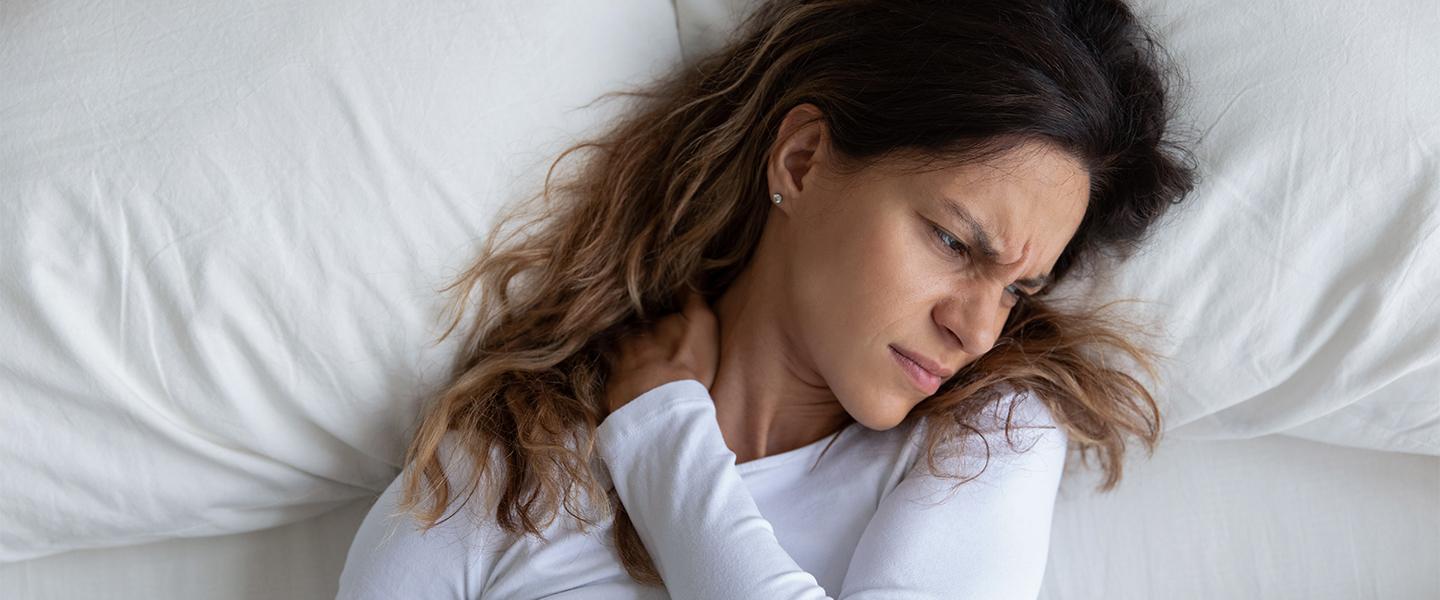What Are The Best Sleeping Positions For Neck Pain?
Neck pain can undoubtedly be a real pain in the neck, and there's a good reason why that saying is so popular! Neck pain can be debilitating in everything you do, from day to day tasks, to trying to get to sleep.
If neck pain is causing you difficulties when trying to get to sleep and disturbing you through the night, it can cause more issues than just tiredness. Getting a good night's sleep is strongly linked with the body's ability to heal, mental health, productivity, and concentration.
If you are suffering from chronic neck pain, speaking with your healthcare professional is advised. You should also look at how you sleep to see if there are any changes you could make.
With the right sleeping position and pillows, you could reduce your neck pain and improve your sleep. Our guide covers everything you need to know about sleeping positions for neck pain, from which pillows to use to how to position yourself.
Best sleeping position for neck pain
Your sleep position can cause stiffness, back, and neck pain that can wear off throughout the morning. Bad sleeping positions can also cause more severe damage that stops you from doing certain things.
Here are some of the best sleeping positions that can help with neck pain and minimise the risk of suffering from it.
Sleeping on your back
Sleeping on your back and using a thin pillow will help maintain your spine's natural curve. Back sleepers should lie down flat with their arms to their side for the best position.
Sleeping on your side
Neck pain can often be caused by an unnatural sleeping position and poor pillow choices. By using a relatively firm pillow with a high loft, side sleepers should get the head and neck support they need to keep the spine aligned.
Sleeping in an upright position or in a recliner
Sleeping upright can relieve people suffering from neck pain and is also a good option for pregnant women. If you like to sleep upright, v-shaped pillows can support your neck and stop your head from tipping.
Falling asleep with your head to the side for long periods can cause neck strain, and sleeping with your head tipped forward can obstruct your airways.
What are the best pillows to use for neck pain?
One great way to reduce neck pain is by investing in a new pillow. Knowing the best pillows for neck pain and your sleeping position is vital to get the best rest possible.
Best for back sleeper
Back sleepers should look for pillows with a medium loft of three and five inches. A medium to firm pillow will also offer the head and neck support needed.
Sleepseeker's back sleeper pillows can provide you with all the support you need, with a choice of filling and firmness.
Best for side sleeper
Pillows for side sleepers should have a loft of between five to seven inches to ensure good spine alignment. A firmer pillow is the best option as this will give the head and neck support, allow contouring, but stop sinking.
Best for an upright position or in a recliner
V-shaped pillows which wrap around the neck are best for upright or reclined positions because they keep the head and neck secure and won't slip down.
Pillow types
Choosing a pillow will change depending on your preferred sleeping position, but understanding the available options will help you decide.
- Feather and down pillows - Down and feather pillows are a soft, mouldable option that can support the head and neck well. They can flatten quickly and need to be plumped or refilled, and can also be difficult to wash.
- Hollowfibre pillows - These are a great budget option, but you may sacrifice longevity. There are lots of great options available, including hypoallergenic styles. Because hollowfibre pillows are not as breathable as some options, they can get quite warm in the summer months. Most of these are machine washable making them a convenient choice.
- Memory foam pillows - These are a great option, offering a lot of support and are easy to care for. Memory foam pillows will last a long time but can be warm in the summer as they aren't very breathable.
- Latex pillows - This premium option offers good even support, breathability, and longevity. They are also naturally hypoallergenic and great for those suffering from allergies, but they can be expensive.
- Wool and cotton pillows - These are a good option for side sleepers because they are firm. They are also breathable and remain cool during the summer months, and are hypoallergenic with a natural resistance to mould and dust mites. They are, however, one of the heavier options and are prone to flattening.
Why you should avoid sleeping on your stomach if you have neck pain
Sleeping on your stomach will force your head into one position to either side for a long time. This can stress the neck and cause stiffness, strains, and pain.
Sleeping on your stomach will also tip your head back, stretching the neck muscles and leaving your spine out of alignment. This can restrict blood flow and compress nerves as well.
Tips on how to prevent neck pain from starting
There is a saying that prevention is better than cure, which is definitely true of neck pain.
Taking the necessary steps to ensure your neck doesn't go through any undue stress can help to minimise the risk of suffering from neck pain and improve your general wellbeing.
Here are some of the top tips to help prevent neck pain;
- Improve your sitting and standing posture - Good posture can help relieve the pressure put on the muscles around the neck. Slouching and having your neck and head forward will cause unnecessary strain that can be avoided.
- Select a pillow that suits your sleep position - Sleeping positions can cause neck pain, so make sure you have a pillow that supports your head and neck and keeps your spine aligned. This will help minimise the risk of stiff and sore necks.
- Use a headset - If you use the phone a lot, holding it up to your ear or cradling it in your neck for extended periods will start to cause a strain on your neck muscles. A headset will let you keep a good posture while speaking on the phone.
- On flights and other forms of transportation, use a V-shaped pillow - V-shaped pillows can help your posture and keep your neck straight if you fall asleep in a seated position.
- Break up extended periods of sitting by taking frequent breaks - Staying in the same position for long periods can cause stiffness. Make sure you get up every so often, get the blood flowing and move about.
- Adjust the height of your computer monitor so that it is at eye level - Craning your neck to look at a monitor or TV screen for long periods will strain your neck muscles. The top of the screen should be at eye level, and it should be between 50 and 100 cm away from you. Your desk level should be at your elbows, and you should allow some space at the edge of your desk for your hands to rest.
- Make sure to stretch regularly - Regular stretching will keep your muscles from getting stiff. It will also prepare you for when you are going to move, so the muscles aren't cold.
- Hold your phone in front of your face instead of glancing down - These days, most people use a mobile phone to check the news, update their social media, and for entertainment. Ensuring you hold your phone at a level that doesn't strain your neck is essential.
- Don't sleep on your stomach - Sleeping on your stomach will cause your head to be tipped back, and your neck will twist to one side. Lying like this for a long time will result in neck strain or stiffness.
- Exercise - Your health and wellbeing are all connected, so staying fit and active will help to reduce the risk of neck pain.
- Stay hydrated - The discs between the vertebrae are made mostly of water, so staying hydrated will help to keep them strong. It is advised to drink around eight glasses of water a day.
- Distribute any weight you carry - Carrying a handbag or briefcase on one side all the time will cause unnecessary strain on one side of your body that you will always be trying to compensate for. Well-distributed weight will stop this.
FAQs
What if I am a stomach sleeper?
Though it isn't recommended for neck pain, stomach sleepers can use a thin pillow to stop tilting the head back. Sleepseeker offers a range of front sleeper pillows to suit your preferred nighttime position.
Will my mattress make a difference to neck pain?
A good mattress should support the body and align the spine. A good pillow and mattress combination will help minimise the risk of neck or back pain. Good mattresses and mattress toppers will ultimately help improve your sleep quality and comfort.
Should I buy an expensive pillow?
There are plenty of great budget options available, but it's a case of finding the right pillow to support your head and neck and give you a good night's sleep.
Choose the right pillows for your sleeping position
Most of us don't actively choose our sleeping positions - it just happens. So being able to invest in quality pillows and mattresses will help minimise the risk of neck pain, no matter how we sleep.
With so many great options available at Sleepseeker, you won't have to break the bank to find the perfect bedding for you. We offer a range of pillows and duvets for you to choose from, making it easy to have a comfortable night's sleep.
Read some of our other guides for more sleep advice:
What's trending now...
-
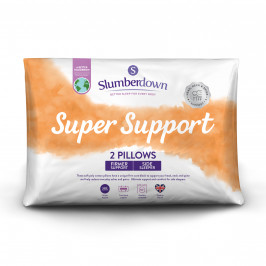
Slumberdown Super Support Firm Support Side Sleeper Pillow, 2 Pack
£17.00
Shop Now -

Slumberdown All Seasons Combi 15 Tog (10.5 + 4.5 Tog) Double Duvet
£30.50
Shop Now -
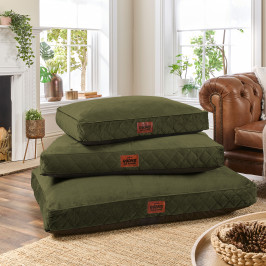
Slumberdown Paws for Slumber Olive Green Pet bed, Medium
£39.00
Shop Now -

Slumberdown Wonderful Wool Mattress Topper
From: £54.50
Shop Now -

Slumberdown Paws for Slumber Extra Large Pet Bed Spare Cover, Grey
£20.00
Shop Now -
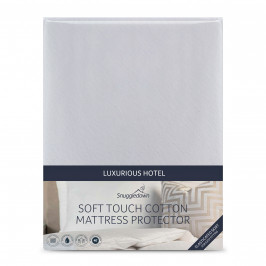
Snuggledown Luxurious Hotel Cotton Waterproof Mattress Protector, Double
£23.50
Shop Now -
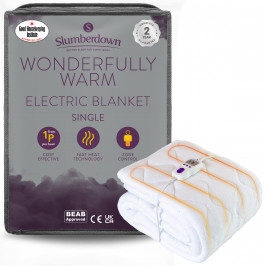
Slumberdown Wonderfully Warm Electric Blanket - Single
£60.00
Shop Now -

Slumberdown Teflon Pillow Protector - Pack of 2
£14.00
Shop Now -

Slumberdown Unwind Outside 2-in-1 Waterproof Cocoon Set, Burnt Orange
£30.00
Shop Now -

Slumberdown Paws For Slumber Sherpa Pet Bed, Medium
From: £25.00
Shop Now -
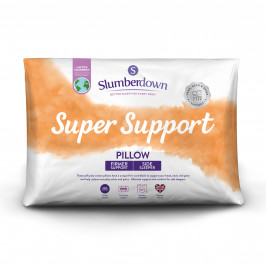
Slumberdown Super Support Firm Support Side Sleeper Pillow
From: £17.00
Shop Now -
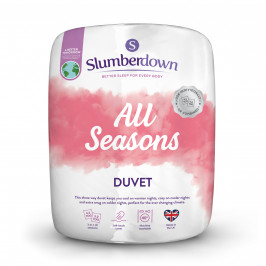
Slumberdown All Seasons Combi Duvet
From: £25.50
Shop Now -

Slumberdown Paws for Slumber Medium Pet Bed
From: £39.00
Shop Now -
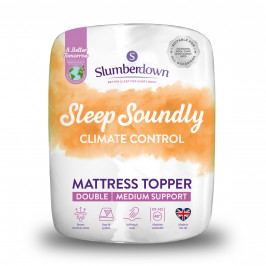
Slumberdown Sleep Soundly Climate Control Mattress Topper, Double
£33.50
Shop Now -

Slumberdown Paws for Slumber Extra Large Pet Bed Spare Cover
From: £20.00
Shop Now -
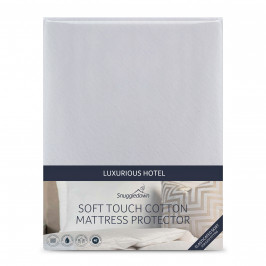
Snuggledown Luxurious Hotel Cotton Waterproof Mattress Protector
From: £19.50
Shop Now -
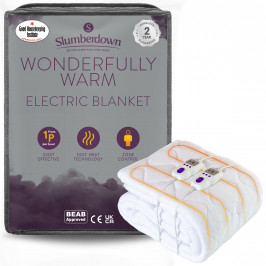
Slumberdown Wonderfully Warm Electric Blanket
From: £60.00
Shop Now -

Slumberdown Unwind Outside 2-in-1 Waterproof Cocoon Set
From: £30.00
Shop Now -
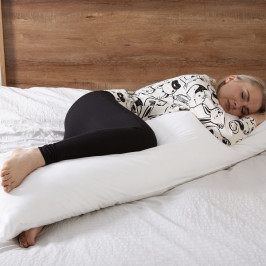
Slumberdown Body Support Pillow, 1 Pack, Includes 100% Cotton Pillow Case
£20.00
Shop Now -

Slumberdown All Seasons Combi 15 Tog (10.5 + 4.5 Tog) King Size Duvet
£34.00
Shop Now -
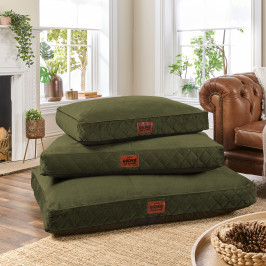
Slumberdown Paws for Slumber Olive Green Pet Bed, Large
£49.00
Shop Now


